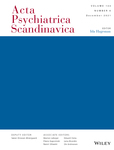Exploring Neuropsychological Functioning After Electroconvulsive Therapy in the Domain of Memory: A Prospective Study
Abstract
Objective
There is ongoing concern about the possible negative impact of ECT on neuropsychological functioning, especially on autobiographical memory. In this study we aimed to identify the short- and long-term neuropsychological effects of ECT in the domain of memory.
Methods
Twenty-eight patients aged 18 years and older with a unipolar or bipolar depression, referred for ECT, were eventually included. The neuropsychological test battery assessed verbal memory, verbal fluency, and autobiographical memory. The battery was administered prior to ECT, 1 week, and 3 months after the last ECT session. We compared the neuropsychological performances of our sample with normative data from a healthy population.
Results
After adjusting for covariates, performance on tasks assessing verbal memory, verbal fluency, and autobiographical memory showed a significant decline during ECT. However, test scores significantly improved following the completion of ECT. Additionally, patients with higher QIDS-CR scores consistently demonstrated lower performance on the verbal fluency task across all time points. No significant association was found between the total number of ECT sessions and changes in test scores during or after treatment. 3 months after ending ECT, cognitive functioning returned to pretreatment levels of performance. We found that patients with a depressive episode performed significantly worse on task measuring verbal memory and fluency at every time point as compared to a healthy population.
Conclusion
Our results show that a course of ECT in patients with a depressive episode influences verbal memory, autobiographical memory and verbal fluency. Neuropsychological performances significantly declined during ECT. Following ECT, neuropsychological performances, as compared to during ECT, were significantly improved and were equivalent to baseline. However, neuropsychological performance remains poor as compared to a healthy population.

 求助内容:
求助内容: 应助结果提醒方式:
应助结果提醒方式:


